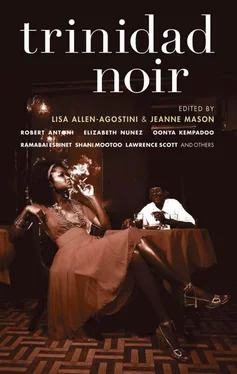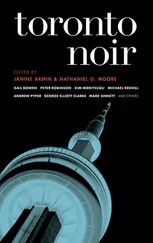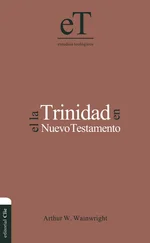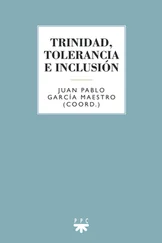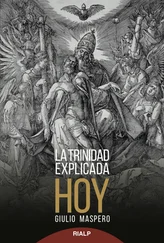Lisa Allen-Agostini - Trinidad Noir
Здесь есть возможность читать онлайн «Lisa Allen-Agostini - Trinidad Noir» весь текст электронной книги совершенно бесплатно (целиком полную версию без сокращений). В некоторых случаях можно слушать аудио, скачать через торрент в формате fb2 и присутствует краткое содержание. Город: New York, Год выпуска: 2008, ISBN: 2008, Издательство: Akashic Books, Жанр: Детектив, на английском языке. Описание произведения, (предисловие) а так же отзывы посетителей доступны на портале библиотеки ЛибКат.
- Название:Trinidad Noir
- Автор:
- Издательство:Akashic Books
- Жанр:
- Год:2008
- Город:New York
- ISBN:978-1-933354-55-2
- Рейтинг книги:4 / 5. Голосов: 1
-
Избранное:Добавить в избранное
- Отзывы:
-
Ваша оценка:
- 80
- 1
- 2
- 3
- 4
- 5
Trinidad Noir: краткое содержание, описание и аннотация
Предлагаем к чтению аннотацию, описание, краткое содержание или предисловие (зависит от того, что написал сам автор книги «Trinidad Noir»). Если вы не нашли необходимую информацию о книге — напишите в комментариях, мы постараемся отыскать её.
Trinidad Noir — читать онлайн бесплатно полную книгу (весь текст) целиком
Ниже представлен текст книги, разбитый по страницам. Система сохранения места последней прочитанной страницы, позволяет с удобством читать онлайн бесплатно книгу «Trinidad Noir», без необходимости каждый раз заново искать на чём Вы остановились. Поставьте закладку, и сможете в любой момент перейти на страницу, на которой закончили чтение.
Интервал:
Закладка:
It seemed we not only had to be wary of Boysie Singh on the prowl, but also of boys, all boys. My mother’s instructions when I had my first period were straightforward and simple: “Keep away from boys!” I didn’t quite know what she meant. Unlike girls today who are the age I was then, I had no idea how babies were conceived. I took my mother’s directive to mean I was to keep up the adversarial stance Lucille and I had long established with the boys in our neighborhood. They liked teasing Lucille about her name, and since I was her friend, they teased me too. Besides being dark-skinned — I was as dark as Lucille — we were both skinny, and so were unappealing to boys who would get tongue-tied when the buxom, wide-hipped girls passed by. They treated us like their younger brothers, playing tricks on us, their favorite to take advantage of Lucille’s fear of the cemetery.
Lucille’s fear was not the garden-variety fear of ghosts walking on their graves in the cemetery. Her fear had a logical basis, logical if one believes in spirits or at least the ability of humans on this side of the world to communicate with the dead. I am sure this is not how Lucille’s mother would put it if asked about the prayers she said for the dead. Lucille’s mother was a devout Catholic. She believed, as Catholics believed at the time, and perhaps still do, that her prayers for her dead relatives had the power to remit some of their time in Purgatory if they had the misfortune, as most of us will, of dying with venial sins on their souls. Indulgences, the Church called these gifts that the living could bestow on the dead, and one could earn them for their dearly departed if one said such and such prayers and put such and such coins or paper money in the collection basket. Chaucer, of course, had lots of fun with this practice. In the third form, brash teenagers, testing the limits of our religious beliefs, Lucille and I spent many a happy hour reciting lines from The Pardoner , our favorite being the Pardoner’s unabashed admission that he would make people believe they were kissing the bones of saints when what he had offered were the bones of sheep: For myn entente is nat but for to wynne, / And nothyng for correccion of synne .
My mother had no patience with my cynicism. There are no atheists in fox holes, she would say to me, shaking her finger in my face whenever I voiced criticism of the Church. And she proved her point when I dropped to my knees the first time an earthquake shook our house. I was not an atheist by any means, but I resented the hours I had to spend in church every Sunday and on the holy days. Lucille, like me, was not religious but, unlike me, she never challenged her mother’s beliefs. Every night she obediently joined her siblings in her mother’s bedroom as her mother led them in prayer for Mummy Alice. Mummy Alice was how Mrs. Smart referred to her stepchildren’s dead mother. All Souls’ Day was special. On that day, according to Mrs. Smart, the souls of the dead gathered near their graves, anxiously awaiting Indulgences. So every All Souls’ Day, Mrs. Smart took the children to the cemetery, to the grave of Mummy Alice. I would go with Lucille because, of course, Lucille was my best friend. Mrs. Smart would give each of us several candles. She would light them for us and we would stick them, one at a time, into the earth on the mound of Mummy Alice’s grave. Soon Mummy Alice’s grave would twinkle and glitter with pretty flickering tongues of fire and even I was inclined to believe that Mummy Alice stood their smiling with gratitude and appreciation.
In the year Lucille and I failed to win an Exhibition, we were so ashamed that younger girls had won and so desperate for help that we decided that the next All Souls’ Day, when Mummy Alice supposedly came out of Purgatory to hover over her grave, we would make a bargain with her. For a whole year, we would put half our weekly allowance in the Indulgence box at the entrance of the church if she would ask God to help us. Hoping to seal the bargain, we placed extra lighted candles on her grave.
To this day, though rationally I know better, I still wonder if it was the force of nature or, as Mrs. Smart proclaimed, the arrival of Mummy Alice that suddenly caused a powerful wind to swoosh across the cemetery, bypass all the other graves, and slam into the lighted candles on Mummy Alice’s grave. Most of the candles went out immediately, but the flames from a row of them, close to where Lucille was standing, reached up to the edge of her dress and set it on fire. Her mother, who kept a bucket of water nearby for such eventualities, quickly put out the flames. Lucille did not get burned, but whether she believed it was Mummy Alice or the wind that had set her on fire, she developed a mortal fear of the cemetery.
News traveled fast in our neighborhood, and it was not long before the local boys learned what had happened. But this much I could say for the power of the Indulgences we earned for Mummy Alice with our money and our candles: we both won an Exhibition the next time we took the exams. Yet neither Mummy Alice nor the Smart name could save us from failing Latin and Math in the First Form. On the walk back home from the after-school lessons, which our parents hoped would stir dormant gray cells in our brain (surely, with her last name and accomplished brother and sister, Lucille’s cells were simply resting; in my case, my mother’s hope was an act of faith), we had to endure the taunts of the boys. They would hide behind the cemetery wall, waiting to terrorize us, especially on days when no matter how often I repeated the convoluted Latin verb declensions I never could get them right, and so our lessons lasted close to 6 o’clock. “Boo!” the boys would shout over the cemetery wall as we made our way home in the dusky twilight. We would run, but they would race behind us, stopping just short of our homes. “Lucille Smart ent smart!” they would shout. “She friend duncier. Devil come from the grave and bring the fire from Hell to burn she dress!”
Did Lucille believe their taunts? It is hard not to lose confidence in one’s intelligence when test scores prove malicious boys right. But I did not believe in all that stuff they said about the Devil and the fires of Hell and I wanted to pay them back for scaring my friend.
The rainy season that July, toward the end of the school year, was worse than any other in the memories of our parents. According to the rhyme we sang to herald the coming of the rains, July should have stood by. June too soon / July stand by / August come it must / September remember . But the thunder and lightning and powerful winds came in July. There was no standing by. For four days it rained, and when it stopped, much of the earth from the tops of the cemetery graves had eroded. Lucille was not with me when I passed the cemetery and noticed something white and hard and round lodged in a corner between the wall and the rails of the gate. It was the head of a skeleton! I am not a particularly brave person, but I could not bear to see my friend breaking into a cold sweat each time we passed the boys. I had to stop them. When I saw the skull in the corner of the cemetery wall, my already overactive imagination went into overdrive. Our English teacher had told us that we would be reading Hamlet in the Second Form, and Lucille, being an avid reader (though, paradoxically, her competence in every subject except English cast doubt on her native intelligence), couldn’t wait that long. I confess I did not share her enthusiasm, but I listened as she told me the plot. The cemetery scene piqued my interest. Alas, poor Yorick!
I don’t remember the excuse I gave Lucille for leaving our lessons early that day, but I must have been persuasive for she never suspected I had devious plans. I got to the cemetery early, before the boys came, mounted the skull on a stick, and hid behind a headstone near the cemetery wall. Just as the boys began taunting Lucille, I raised the skull and began such a hooting and a bellowing I almost scared myself and certainly scared them. They ran for their lives.
Читать дальшеИнтервал:
Закладка:
Похожие книги на «Trinidad Noir»
Представляем Вашему вниманию похожие книги на «Trinidad Noir» списком для выбора. Мы отобрали схожую по названию и смыслу литературу в надежде предоставить читателям больше вариантов отыскать новые, интересные, ещё непрочитанные произведения.
Обсуждение, отзывы о книге «Trinidad Noir» и просто собственные мнения читателей. Оставьте ваши комментарии, напишите, что Вы думаете о произведении, его смысле или главных героях. Укажите что конкретно понравилось, а что нет, и почему Вы так считаете.
